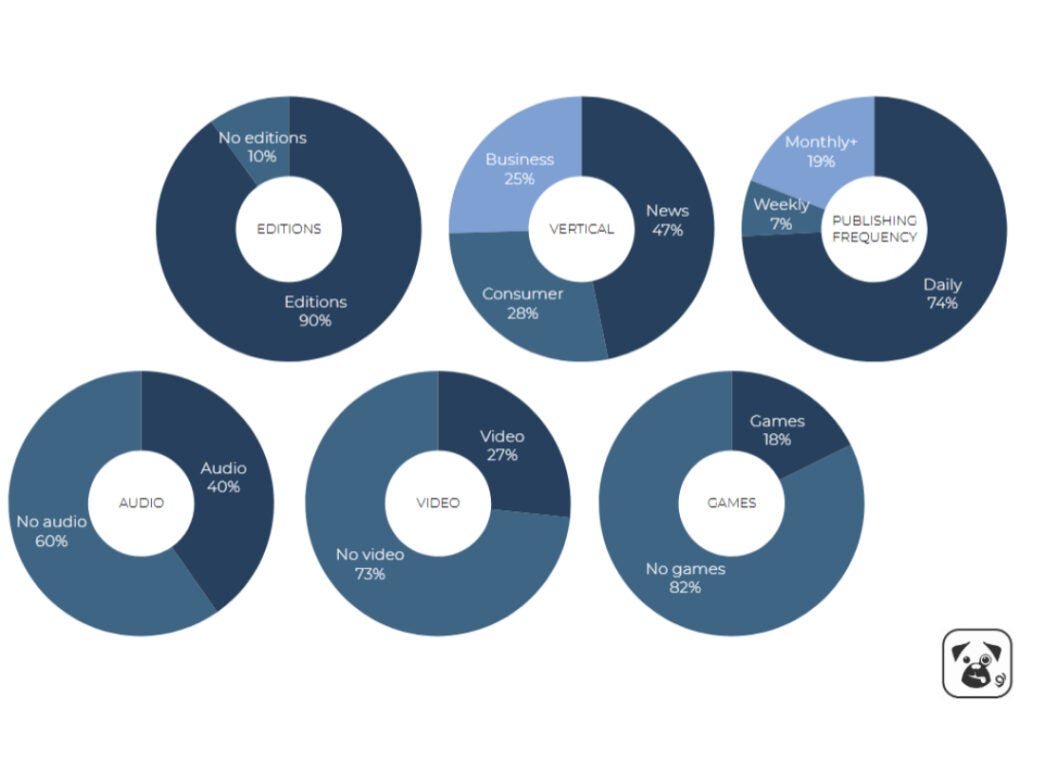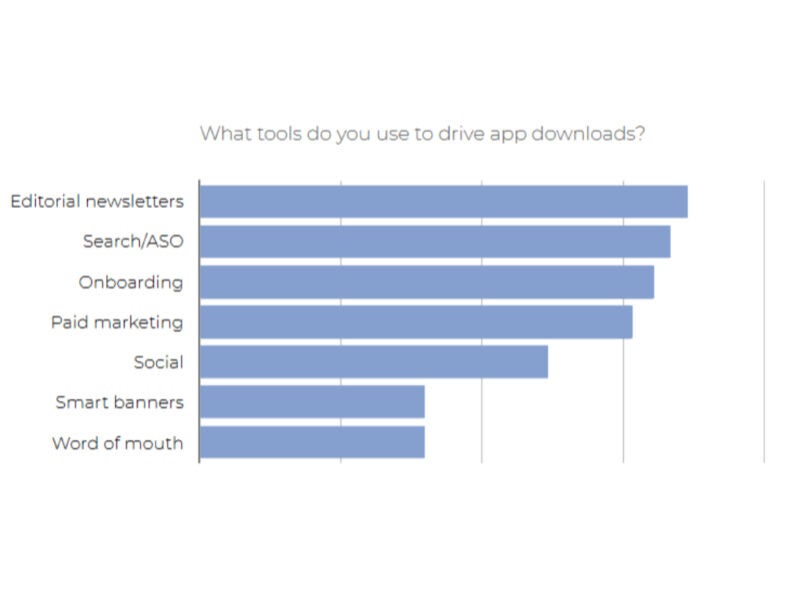
Publishers are shifting their focus towards direct reader relationships via apps because “social traffic is close to vanishing, and with the rise of generative AI and the threat of Google zero, search appears to be heading the same way” – according to app development company Pugpig.
This was one of the conclusions published after surveying a panel which included representatives from 39 news organisations.
Pugpig CEO Johnny Kaldor said the survey revealed publishers are shifting from “chasing scale to targeting smaller but more loyal and valuable audiences”, due to a “clear pivot” from ad-only models to digital reader revenues. Pugpig said it works with 135 publishers and supports 400 apps.
Its survey found that email newsletters now outstrip search and social when it comes to promoting app downloads.

Audio integration growing in apps
Almost 50% of Pugpig’s apps offer audio, with the report adding that “video is next, but won’t hit its full potential until vertical formats are fully embraced”.
This number is said to be up “significantly” from last year, and audio is delivered as either podcasts or narrated articles.
In apps that offer audio, users who engage with it spend “nearly twice as much time” in the app as those who don’t, the report found.
A case study on one publication, Foreign Affairs, showed the potential in offering audio. Its audio listeners, while most engaged, made up less than 10% of its app audience. Foreign Affairs offers a mixture of AI and human-narrated articles to its app users.
After improving visibility of the audio offering, its queuing audio experience and allowing users to adjust the speed of the audio, Foreign Affairs saw a doubling of audio users to 20%.
There was also a 72% increase in audio listening year over year in January.
Tasia Fischer, product operations manager, Foreign Affairs, said: “We know from feedback that we have from readers … they are doing chores around the house or going on long car rides or commuting and listening to audio articles back-to-back.”
Games
“Where apps employ audio and game content, they take up a large portion of time spent in the apps,” the report said.
Pugpig’s data found apps with games also tended to see higher engagement and session time: at Stylist magazine, puzzle users read 31% more articles per session and 69% more articles a week.
“Games are one of our best retention tools,” said Felicity Thistlethwaite, digital content director at The Stylist Group. “More subscribers play the games, and games users, in general, are more than twice as likely to come back to the app.”
[Read more: How games are powering online subscriptions at The New York Times]
Varying app engagement per publisher type
When Pugpig reviewed push notification data across publisher apps, business publications saw the most success in tersm number of users opening a push notification in a month, at about 46%, with this sitting at about 30% for news and 13% for consumer publications.
However, Pugpig also found, when looking at app engagement, business publications saw the lowest average screen views per session, implying users were visiting business apps for a specific reason rather than to browse.
News publications saw the highest average sessions per month (averaging of about 19), highest average session durations (about 9 minutes) and the highest average time spent per month (about 175 minutes).
Meanwhile, consumer publications had the lowest average monthly sessions and average time spent per session, implying a challenge to attract and retain users.
Pugpig said publishers are also gravitating toward apps to “lure younger audiences”, but can only do this through creating “new user experiences, separate from their existing, more traditional products”.
“These apps will behave completely differently, offering story bundles made up of vertical video, story cards, audio, and other formats, delivered as a personalised feed and augmented with all the usual social features.”
The 2025 Pugpig app report is available to download (requires email address).
Email pged@pressgazette.co.uk to point out mistakes, provide story tips or send in a letter for publication on our "Letters Page" blog
